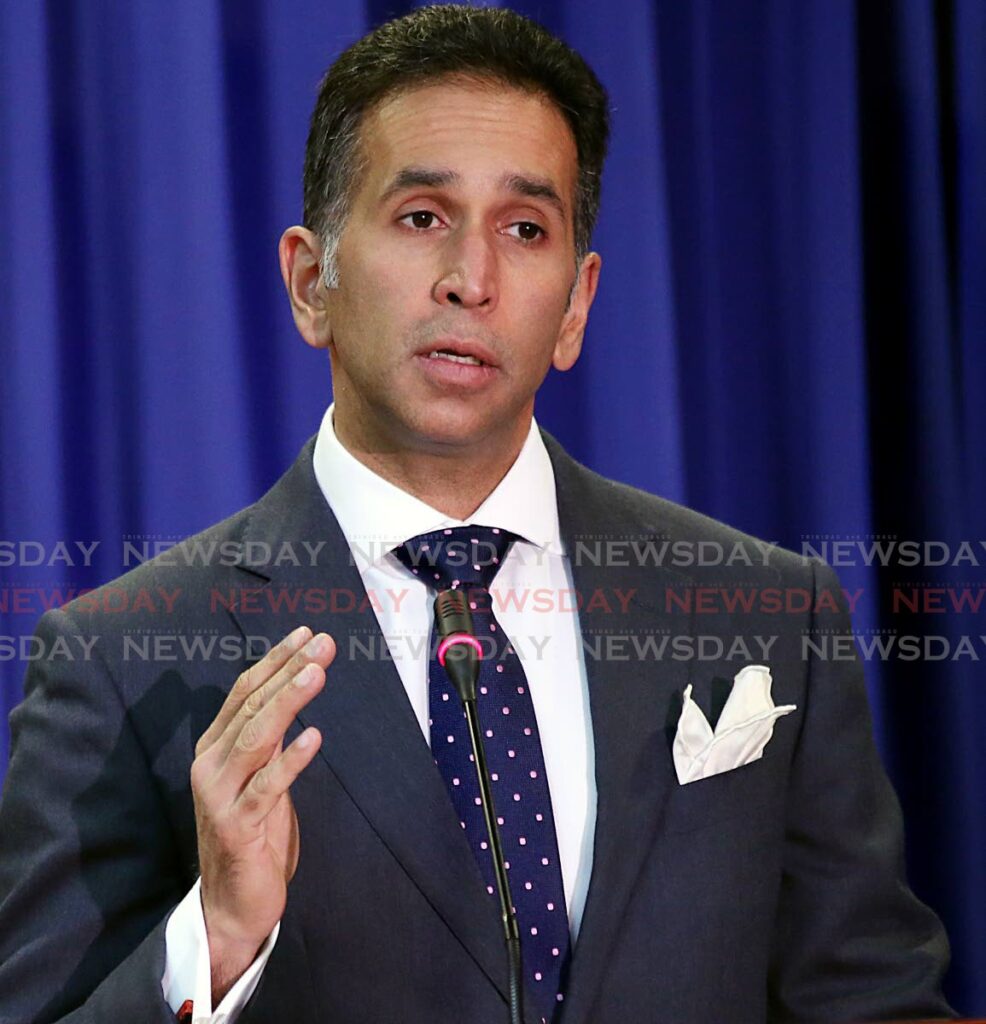Police, prison, fire officers tell Government: Pay us for jabs

OFFICERS in the police, prison and fire services want various incentives to get vaccinated.
This was revealed by Attorney General Faris Al-Rawi during a virtual news conference on Thursday, the day after meeting the three associations representing the protective services. Ironically, the news came on the day when two more police officers died from covid19-related complications.
On Saturday, the Prime Minister said anyone paid a government salary must be vaccinated by mid-January (unless medically exempted), as he revealed very low vaccination rates in the services.
Dr Rowley lamented vaccination rates of just one in two police officers (49 per cent), one in three prison officers (35 per cent) and one in five fire officers (20 per cent.)
Al-Rawi said, "In treating with the protective services, I received some very useful submissions."
He said the associations wanted medical insurance, incentivisation, and prioritisation for treatment and testing in the public health system.
"They have recommended the protective services have first priority on testing, on admissions, and, as I understood it, on bed-care treatment.
"They recommended every person in the protective services have access to a doctor and nursing personnel provided by the State, where their medical status can be determined on a one-on-one basis, and then they can be taken into priority treatment.
"We also received the recommendation that there should be an incentive to take the vaccine."
The AG did not support any prioritisation. He said Trinidad and Tobago has hundreds of thousands of frontline workers. He also asked why unvaccinated officers should get priority for treatment over private individuals who had in fact been vaccinated.
Police Social and Welfare Association head Gideon Dickson told Newsday other Caribbean countries had given financial incentives to officers to get vaccinated and governments and corporations in developed countries had partnered to incentivise people to get vaccinated.
"Because there is a general mistrust based on so much information out there, you can add incentives for persons to come out and increase the vaccination rate."
Newsday asked for examples.
He said, "In the Caribbean last week, St Kitts offered powerful incentives to its frontline workers in the form of an extra month's salary. Guyana would have done something similar." He said these examples could be looked at as officers in TT were surviving on 2013 salaries.
"You could correlate that now with incentivising officers who haven't been (vaccinated). Everybody could get it, but more so for the officers who haven't taken the vaccine.
"I don't know. It is brainstorming ideas that could increase the vaccination rate."
Dickson also hoped for an education/outreach campaign featuring professionals (including retirees) to visit his officers in their stations in collaboration with the Government.
Regarding financial incentives, he said, "We spoke of it but did not go into it, but just left it under a broad heading."
He said his association was pro-choice on vaccination and said discussion and education could reduce vaccine hesitancy.
Dickson also suggested helping officers access medical testing to know their condition, and feel more empowered to take the vaccine, lamenting many people don't have such access.
"We'll empower them with the information to consider their options going forward.
"The minister (Al-Rawi) spoke about the Government considering taking liability, and that can help change people's present (vaccination) status."
Fire Service Association head Leo Ramkissoon told Newsday he had not sought any upfront incentives for fire officers, but liked the idea of the State assuming liability for any officer suffering any medical adverse effects of the vaccine.
"The only thing I'd link to a monetary measure would be liability."
He said that if vaccinations have a very low rate of adverse effects of, say, just two cases per million vaccinations, the State ought to be expected to be able to pay for any such liability. He said that would act to incentivise officers, although not being an upfront incentive.
"You could make compensation payable for any fallout from vaccination that will cover your medical expenses and ensure your family is taken care of."
He urged a ramping-up of medical testing for the virus for everyone, singling out fire officers displaying symptoms, but also saying they did not want better access than the general public.
Ramkissoon viewed talk of safe zones in the public sector as being a constructive vaccine mandate.
Prison Officers Association head Ceron Richards told Newsday, "We are still analysing what the AG said and we will issue a statement later."

Comments
"Police, prison, fire officers tell Government: Pay us for jabs"